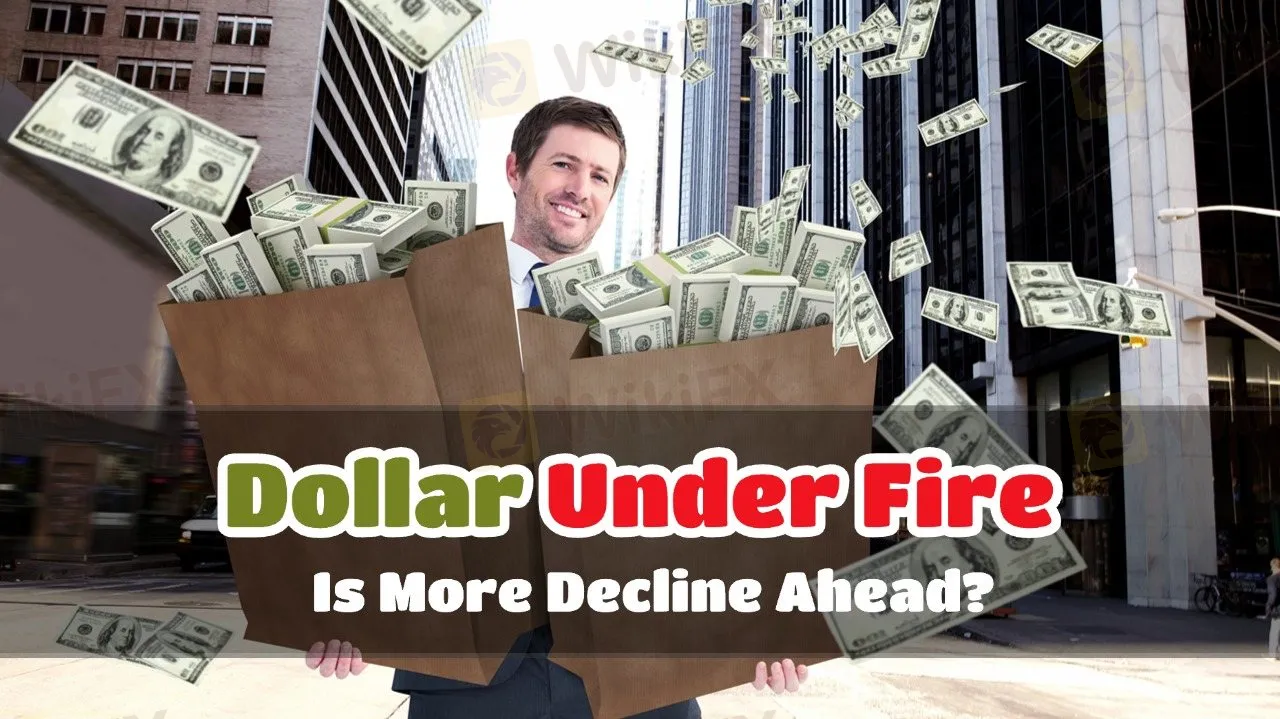简体中文
繁體中文
English
Pусский
日本語
ภาษาไทย
Tiếng Việt
Bahasa Indonesia
Español
हिन्दी
Filippiiniläinen
Français
Deutsch
Português
Türkçe
한국어
العربية
Dollar Under Fire—Is More Decline Ahead?
Abstract:The dollar faces its biggest decline of the year, strong-dollar logic challenged.

Last week, the U.S. dollar experienced its steepest decline of the year, dropping more than 3% in a single week.
The European Union and Germany broke fiscal constraints to increase defense spending, pushing the euro and European bond yields sharply higher. Non-U.S. currencies strengthened across the board, with the Swedish krona, euro, and Norwegian krone posting significant gains.
In contrast, the Canadian and Australian dollars saw limited gains due to shifting market risk sentiment. The dollars continued breakdown suggests a potential long-term trend reversal may be underway.
The fundamental logic behind the strong dollar is facing mounting pressure. The Trump administration's tax cuts have been progressing slowly, while fiscal tightening is becoming more evident. Additionally, tariffs have been used more as a negotiation tool rather than as a means to truly restrict trade, failing to provide meaningful support for the dollar.
Furthermore, Europe‘s increased fiscal spending could prompt other economies to follow suit, narrowing interest rate differentials between the U.S. and other countries, further weakening the dollar’s advantage.
Future Challenges for the Dollar
If the U.S. continues its path of fiscal tightening while its trade partners adopt more aggressive fiscal stimulus policies, the dollar's attractiveness may decline further. In addition, uncertainties in the global economic environment, fluctuations in U.S. Treasury yields, and geopolitical factors could all play a crucial role in shaping the dollars future trajectory.
Given the potential weakness of the dollar, investors should closely monitor global economic policy shifts, particularly major economies fiscal policy changes.
A well-diversified portfolio, with exposure to non-U.S. currencies and safe-haven assets, could help mitigate risks and navigate potential market volatility.
Disclaimer:
The views in this article only represent the author's personal views, and do not constitute investment advice on this platform. This platform does not guarantee the accuracy, completeness and timeliness of the information in the article, and will not be liable for any loss caused by the use of or reliance on the information in the article.
Read more

WeTrade Secures CySEC License to Expand EU Trading Services
WeTrade secures a CySEC license, allowing EU-wide operations. The approval boosts services, partnerships, and trust across the global trading community.

Elites Gather in Taipei to Forge a New Forex Ecosystem
On April 19, the exclusive cocktail party hosted by WikiFX Elites Club concluded successfully in Taipei. The event brought together local forex industry leaders, seasoned experts, and elite practitioners to discuss industry trends and share cutting-edge insights. It fully demonstrated WikiFX’s irreplaceable value as a globally leading forex investment ecosystem platform in gathering industry wisdom and driving sector development.

Why Trade Agreements Matter to Nations
In today’s interconnected world, trade agreements serve as the foundation for stable and predictable international commerce.

Trade Fights Are Heating Up—What Happens Next?
Global financial markets have become increasingly reactive to even minor developments in international trade talks.
WikiFX Broker
Latest News
eXch Exchange to Shut Down on May 1 Following Laundering Allegations
Think Scams Won’t Happen to You? That’s Exactly What Scammers Count On
Beware of Gold Bar Investment Scams: Rising Threats
Kraken Launches Forex Perpetual Futures on Kraken Pro Platform
Elites Gather in Taipei to Forge a New Forex Ecosystem
WeTrade Secures CySEC License to Expand EU Trading Services
Over $4 Billion Laundered Through Crypto Scams in Paraguay
Why You Keep Falling for Ponzi Schemes & How to Finally Break Free?
XGI Horizontal Promised Riches But Delivered a RM600,000 Loss
Currency Calculator


